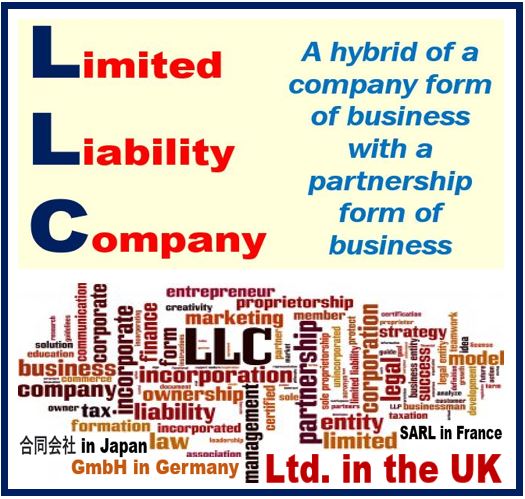LLC, or Limited Liability Company, is a hybrid business structure combining the best aspects of corporations with those of sole proprietorships or partnerships. It’s a popular option for many businesses due to the protection and flexibility it offers.
Owners and members
LLCs are owned by ‘members,’ who can be individuals, other businesses, or even foreign entities. This structure provides flexibility, allowing for a single member or multiple members in the LLC.
Protection
Consider the scenario of starting a business that specializes in unique t-shirts. The ‘limited liability’ feature of an LLC protects your personal assets in case the business faces financial trouble or legal issues.
Only the business’ assets are at risk, meaning your personal resources, like your savings or vehicles, remain secure. This level of protection is a significant advantage for many entrepreneurs.

Tax flexibility
One of the most advantageous features of LLCs is their tax flexibility. By default, the company itself isn’t taxed. Instead, the profits (or losses) “pass through” to the members, who then report them on their individual tax returns. However, if it’s beneficial, LLCs can also opt to be taxed as corporations.
Management styles
LLCs offer versatility in terms of management, and they can operate under various structures, including:
- Member-Managed
In this arrangement, all members participate in the day-to-day decisions and operations of the business.
- Manager-Managed
In this setup, members appoint a manager or managers to handle the daily responsibilities, allowing the members to focus on broader strategic decisions or other pursuits.
Setting up and running an LLC
To establish an LLC, you need to file certain paperwork with the state where your business is located, often called the ‘Articles of Organization.’ This process may involve some fees. Many states also recommend creating an ‘Operating Agreement,’ which serves as a guideline for how your LLC will operate.
An LLC typically has what’s known as ‘perpetual existence,’ meaning it continues to exist even if a member departs, unless specified otherwise in the company’s regulations.
Each state has unique regulations for LLCs. For instance, the requirements in California might differ from those in New York. Therefore, before establishing an LLC or conducting business as one, it’s crucial to thoroughly check the laws in your specific state.
Most states require regular updates from businesses, so if you own an LLC, you might need to submit an annual report and potentially pay a corresponding fee. However, these requirements can vary significantly from one state to another.
Written by Nicolas Perez Diaz, October 21, 2023.
